Acupuncture and Chinese Medicine for Thyroid Health
Using acupuncture and Chinese medicine for thyroid disorders is not a new idea. Although lab tests of thyroid function only go back a few decades, traditional Chinese physicians understood the signs and symptoms that we now know can be caused by thyroid disorders. For centuries, they used acupuncture and Chinese medicine for thyroid treatment, based on traditional methods of diagnosis. We can bring that ancient knowledge and experience into modern-day treatment of thyroid disorders, expanding the treatment options available. Acupuncture and Chinese medicine for thyroid can help support thyroid health and prevent illness, as well as assist in healing a poorly functioning thyroid.
This post is part III in a series on natural and alternative medicine treatment of thyroid disorders. Part I provided an overview of nutrition and wellness for thyroid disorders. Part II focused in on key nutrients for thyroid health. Part III discusses the role of acupuncture and Chinese medicine for thyroid treatment.
Thyroid Disorders in Summary
The thyroid gland is an important part of the endocrine system, which regulates the body’s hormones. As such, any thyroid disorder has widespread impacts on metabolic function and long-term health. Thyroid disorders are common and chronic. Symptoms are vague, and thyroid problems often go undiagnosed or untreated.
Part I of this series covered the basics of thyroid function and thyroid disorders in greater detail. To recap, the thyroid is regulated via a feedback loop. If this loop is thrown off, there may be too little thyroid hormone (hypothyroidism) or too much (hyperthyroidism). Symptoms of hypothyroidism include fatigue, depression, poor sleep, dry skin and hair, heavy periods, sensitivity to cold, and muscle and joint pain. Symptoms of hyperthyroid include anxiety, irritability, hyperactivity, sweating, trembling, hair loss, and missed periods.
Another form of thyroid disorder, Hashimoto’s thyroiditis, can cause hyperthyroid and hypothyroid symptoms at different stages of the disease. Hashimoto’s thyroiditis is an autoimmune disease, as is Grave’s disease (the most common cause of hyperthyroidism). Autoimmunity occurs when the body’s immune system attacks its own tissues.
We still have a lot to learn about the root causes of thyroid disorders, as well as autoimmune disorders generally. Whatever the cause, it is clear that nutrition, lifestyle and stress play an important role in thyroid health. Acupuncture and Chinese medicine for thyroid expands the treatment options.
Thyroid Disorders in Traditional Chinese Medicine
Before the introduction of lab testing for thyroid disorders in the 1960s, both Western and Chinese physicians could only diagnose thyroid problems based on symptoms. Goiters, a visible enlargement of the thyroid gland, were much more common than they are today. Goiters can occur in either hyper- or hypothyroid conditions, so doctors also looked at other signs and symptoms for diagnosis.
Traditional Chinese medicine theory focuses on balancing opposites, correcting deficiency and excess, and regulating body systems. Acupuncture and Chinese medicine for thyroid treatment applied these traditional theories of balance and harmony in the body. Traditional Chinese physicians recognized the contrasting symptom patterns of hyperthyroid and hypothyroid conditions, but called them by other names. They applied different herbal formulas and acupuncture treatment regimens as needed.
Nowadays, acupuncture and Chinese medicine for thyroid treatment relies on lab tests to definitively diagnose thyroid disorders. Nonetheless, a look at the traditional diagnosis shows us that the ancient Chinese understood many key concepts that scientific research has shown to be true today:
- Emotional disturbance and stress were seen as a root cause of the agitation and anger seen especially in hyperthyroid conditions. We now know that stress truly has an impact on thyroid function and can trigger autoimmune disease, including Grave’s (hyperthyroid) and Hashimoto’s.
- Geographic factors, such as the climate and the availability of certain foods, were understood to play a role in the formation of goiters. We now know that deficiency of iodine and other nutrients, as well as an excess of foods that block iodine absorption, may lead to the formation of goiters.
- Depletion of the digestive system was seen as a root cause of fatigue and other symptoms of hypothyroidism. If the digestive depletion was not addressed, it was understood to cause depletion in other systems, ultimately impacting basic metabolism and aging. We now know that thyroid function and blood sugar metabolism are closely tied, and a disturbance in one can lead to problems with the other.
- Traditional Chinese doctors understood that a person’s constitution and family background (genetics) can be risk factors for illness. Chinese medicine emphasizes prevention of illness, avoiding overtaxing one’s constitution by maintaining a healthy lifestyle.
Chinese Herbal Medicine for Thyroid Disorders
Traditional Chinese herbal medicine is always prescribed in formulas, which combine and balance the synergistic properties of several herbs. Rarely is one single herb prescribed alone. On the basis of traditional formulas, along with biomedical understanding of thyroid disorders, modern herbalists have created new formulas to treat thyroid conditions. Although clinical trials of Chinese herbal formulas for thyroid are scanty, the few that have been done show promise for treatment of goiters, as well as hyper- and hypothyroid conditions.
In addition to clinical studies, the biochemistry and pharmacology of some of the individual herbs used in formulas for hypothyroidism and hyperthyroidism have been studied. Many of these herbs, such as Ginseng and Rehmannia, have been shown to have wide-ranging benefits for endocrine function, including the thyroid. Herbal formulas for goiter often include sea vegetables, such as Sargassum, which are rich in iodine and help stimulate thyroid function.
Acupuncture Treatment for Thyroid Disorders
Acupuncture treatment for thyroid disorders is traditionally used along with an herbal formula and nutritional prescription. Acupuncture generally has a homeostatic, or balancing, effect on body systems. Unfortunately, clinical studies that look at the impact of acupuncture on thyroid hormone levels are rare. Nonetheless, preliminary studies show promising evidence that acupuncture can be safe and effective in treating hyperthyroid, hypothyroid, and Hashimoto’s autoimmune thyroiditis. Acupuncture can also help manage many of the symptoms and complications associated with thyroid disorders, such as insomnia, fatigue, anxiety, depression and menstrual problems.
Healing Thyroid Disorders Naturally
Acupuncture and Chinese medicine for thyroid health can be part of an effective wellness program, both for preventing and helping to heal thyroid disorders. It can be used in conjunction with whole foods nutritional therapy to support the thyroid. Traditional Chinese medicine has a long history of using both acupuncture and herbal formulas for treating the symptoms associated with thyroid problems, prior to the introduction of lab testing for thyroid function.
Maintaining thyroid function, and early detection of thyroid problems, is very important for long-term health. It can help prevent the development of other chronic illnesses. Lab testing of thyroid function and hormone levels is required for definitive diagnosis of thyroid disorders, and is often as part of routine medical exam and testing for older adults. With early detection, a natural wellness program can help strengthen thyroid function, avoiding the need for medications.
Inner Works Acupuncture is a Portland acupuncture clinic located in the Alphabet District in Portland, Oregon. We offer Five Element acupuncture, Chinese herbal medicine, and nutritional therapy for many chronic disorders, including thyroid. To learn more about treatment, call us today at (503) 227-2127 to schedule an appointment.



